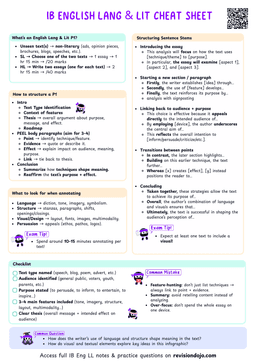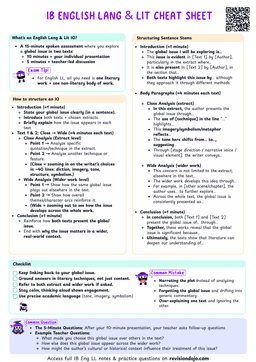Write With Active Voice
Active voice
When the subject of the sentence performs the action.
- In active voice, the subject performs the action.
Active: The author employs irony to mock societal norms.
- In passive voice, the subject receives the action.
Passive: Irony is employed to mock societal norms.
Why Active Voice Matters
- You’re writing analysis, not a police report.
- Active voice helps you:
- Stay clear: The subject (usually the writer) and verb (what they do) are front and center.
- Sound confident: Active writing shows ownership of your point.
- Show intention: Writers make deliberate choices. Examiners want to see you recognise that.
- Avoid vagueness: Passive voice often skips the ‘who’, making your writing feel fuzzy.
Passive voice: The tone is created by the use of repetition
Active voice: The poet creates a mournful tone through repetition.
- In the passive version, who’s doing the action? It’s unclear.
- In the active version, the poet is in control, and you sound like an analyst, not an observer.
Think Like an Examiner
- Again, IB English is all about analysis, understanding why a writer made specific choices.
- If your sentence makes it sound like the text just magically happened, you’re not proving you understand the author's purpose and intent.
How to Spot Passive Voice
- Look out for:
- A form of "to be" (is, are, was, were)
- Followed by a past participle (used, highlighted, employed)
- Passive: The theme is explored in the second stanza.
- Active: The author explores this theme in the second stanza.
Common Verbs for Active Voice
| Purpose | Verbs |
|---|---|
| Present the technique | uses, employs, applies, selects |
| Emphasize an effect | amplifies, intensifies, reinforces, heightens |
| Create tone/mood | establishes, evokes, generates |
| Compare/contrast | contrasts, juxtaposes, shifts, subverts |
| Reveal meaning | reveals, exposes, symbolizes, suggests |
To identify passive voice, look for a form of "to be" (is, was, were) followed by a past participle (used, employed, highlighted).
Improve these passive sentences:
- Passive: The tone of despair is conveyed by the repetition.
- Passive: A sense of urgency is created by the short sentences.
- Passive: This idea is shown through the contrast between the two stanzas.
Solution
- Active: The repetition conveys a tone of despair.
- Active: The writer creates urgency through short, abrupt sentences.
- Active: The poet shows this idea by contrasting the two stanzas.
- If you want to sound analytical, write like someone who sees the writer’s hand in every technique.
- "The poem uses metaphor.”
- To do what?
- "The poet uses metaphor to expose the speaker’s emotional conflict."


